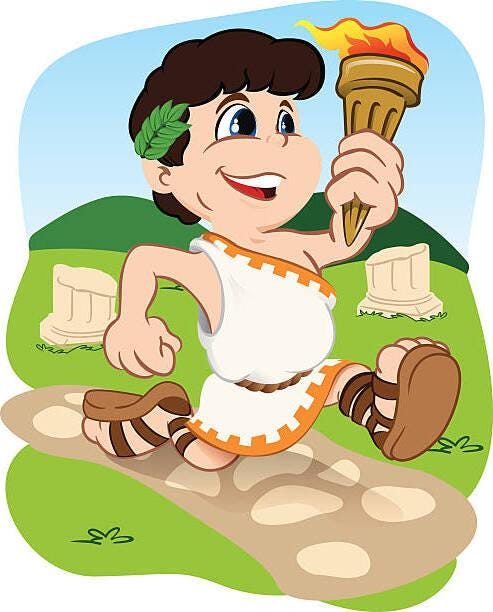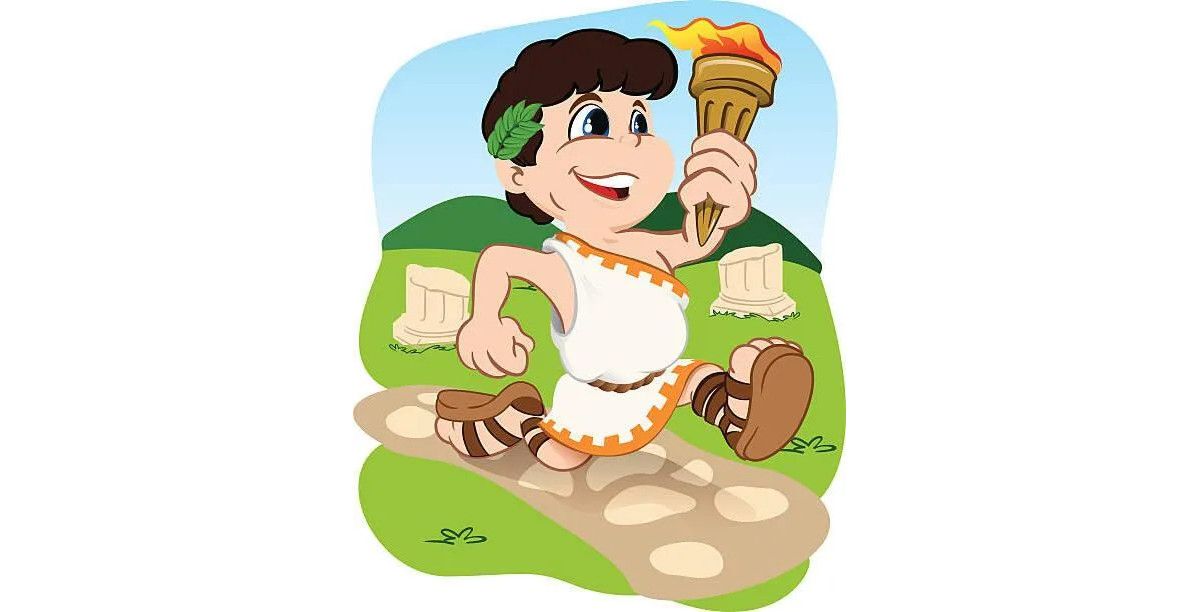By Eugenia Manolidou
This week, I thought we should “get physical” and explore the world of sports and athletics, by uncovering origins of terms like “athletes,” “gym,” and “stadium” that still exist in our everyday language, with roots traced all the way back to Ancient Greece.
Ἆθλος (pronounced áthlos, meaning contest or feat), is a very ancient word found in texts as ancient as the Odyssey and the Iliad, which incorporates the essence of athletic achievement. In ancient times, athletes would strive to outperform their peers in a variety of athletic games, just like today! They would prove their strength, agility, and skill in events like running, wrestling, and discus throwing.

The term “gymnasium,” or “gym” as we call it today, is derived from the Greek word γυμνός (pronounced gymnós) meaning naked, since the athletes exercised and competed with no clothes on! This was a common practice in Greek athletics and it symbolized the purity of the athletic endeavor.
Rooted in the Greek word στάδιον (pronounced stádion) meaning a unit of length, “stadium” reflects the places where ancient athletic competitions, like the Olympic Games, were held. The ancient Greek god Hermes was the patron of athletes and watched over competitions, symbolizing fair play and sportsmanship.
As we marvel at the longevity of these ancient words, let’s remember their timeless relevance. From athlos to stadium, they remind us of the enduring pursuit of physical excellence and the universal spirit of competition, showing the lasting impact of the Ancient Greek language in today’s words.
